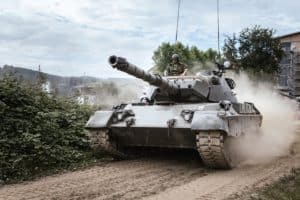
Image: Kevin Schmid
Last night, Liontrust confirmed the suspension of dealing in its Liontrust Russia Fund, citing the closure of the Moscow Stock Exchange and the temporary ban on foreign investors selling local Russian securities.
“We believe suspending the Liontrust Russia Fund is in the best interests of all investors given the events of the past few days,” Liontrust head of trading Matt McLoughlin told The TRADE this morning. “This also came after agreement with the Fund’s Depositary.”
JP Morgan Asset Management has also suspended its Russia Equity Fund, noting that: “Due to the escalating conflict between Russia and the Ukraine, normal market trading conditions have been significantly impaired,” while abrdn this morning tweeted that it “will not be investing in Russia or Belarus for the foreseeable future” on ESG grounds, and that it has “already taken action” to reduce its exposure to these regions.
The question now is how these managers are going to unwind their positions without sustaining serious losses. Last night, the Russian central bank suspended all coupon and dividend payments to foreigners, as well as banning all foreign currency payments to foreigners “in connection with loan agreements” in retaliation against the sanctions, which has raised further concerns. Regarding the closure of its Russia fund, JP Morgan AM has already stated that “disposal and valuation of investments of the fund is impractical.”
On 24 February MSCI announced an index freeze on all Russian securities, and on Monday issued a further call for feedback on the accessibility and investability of the Russian equity market for international institutional investors. The agency has warned that it could potentially reclassify the MSCI Russia Indexes from Emerging Markets to Standalone Markets status, which could significantly affect inflows from a portfolio mandate perspective. The TRADE can also reveal that ESG ratings platform Sevva.ai has today downgraded the overall rating of all stocks listed on the Moscow Stock Exchange to zero in response to the Russian invasion.
“I strongly condemn the devastating decision taken by Putin to invade Ukraine and feel a personal responsibility to take practical action,” said Emanuela Vartolomei, CEO of Sevva.ai’s parent company All Street. “Every company needs to do what it can to weaken Putin’s regime, and today’s decision by All Street reflects this.”
Although active trading on the Russian stock market might be closed, massive losses across US-based Russian funds demonstrate the severity of the current situation. The VanEck Russia ETF, which holds around $1 billion in assets, has reportedly lost about 25% in value, as has the $350 million iShares MSCI Russia ETF.
The uncertainty is now spreading across emerging markets, with almost all asset classes waking up to a sharp drop this week. JP Morgan AM has already closed its Emerging Europe Equity Fund, although the LionTrust Emerging Market Fund currently remains unaffected. McLoughlin told The TRADE that they have no plans to close the portfolio, but noted that: “With the Russian market closure, there are always knock-on effects into other markets. This has included bid-offer spreads widening and book depth reducing, especially in riskier assets. This is in line with what we have seen during other times of crisis.”
On a broader basis, the general trading environment has inevitably become more expensive. “We’ve seen volumes and spreads elevate in equities, and the volume that you can trade on the primary touch has reduced,” confirmed McLoughlin.
Overall, the risk to the global markets looks to be on the downside. With Russia, rapid inflation, rising interest rates, and the remainder of Covid combining into a perfect storm, investors are holding their cards close to their chest.
“We haven’t seen any knee-jerk reactions, no pulling out into cash or making any sudden moves. Everyone is just being very cautious at this point as things could change very quickly for the worse or for the better,” said McLoughlin.
“Potential peace talks could change things immediately if an agreement is reached. We’re keeping a very close eye on this rapidly changing, hour-by-hour situation.“